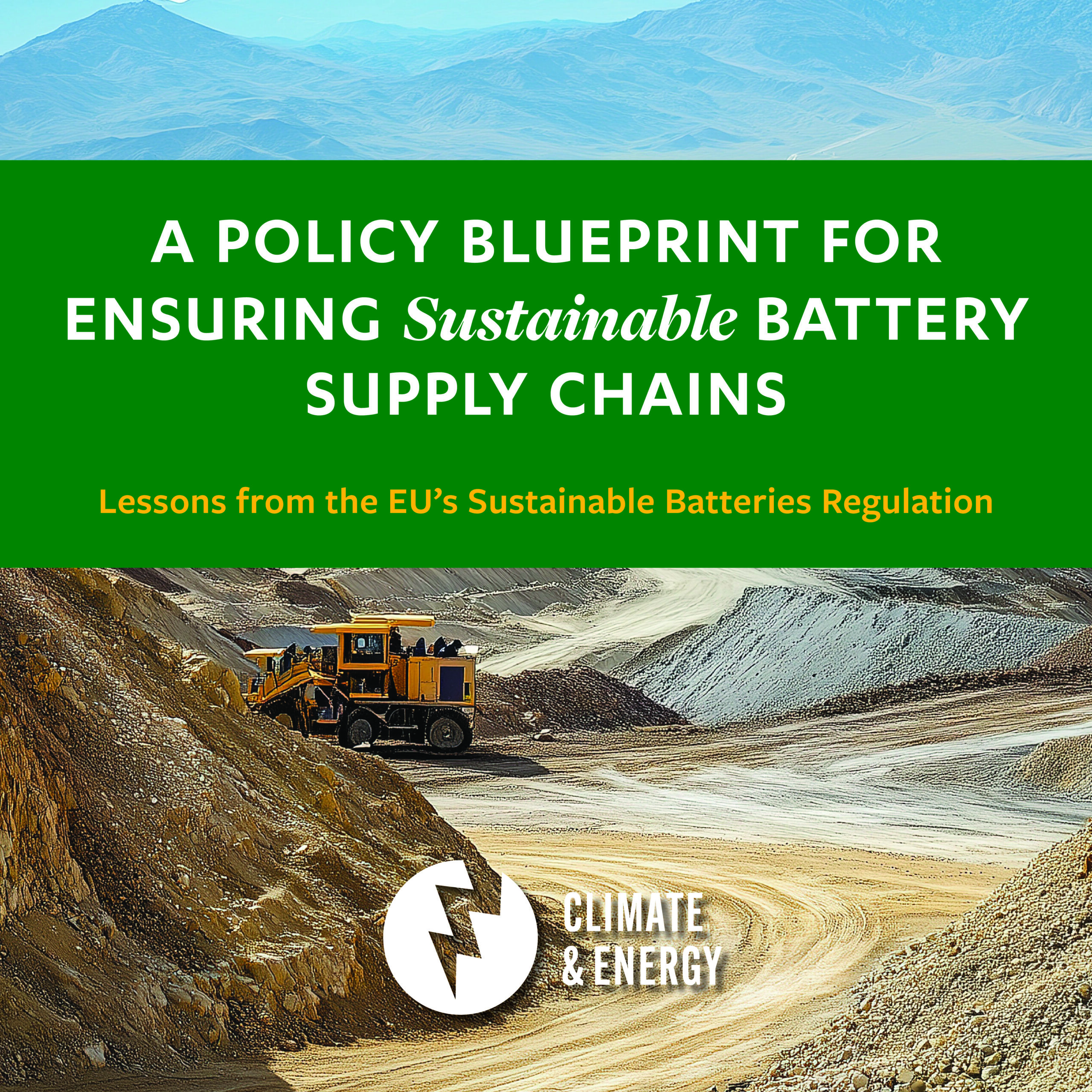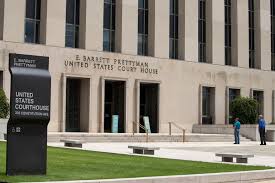Regulation
Make America’s Environment Filthy Again
EPA Administrator Lee Zeldin has launched a full-scale attack on climate, air and water pollution.
In what is one of the most mind-boggling press releases ever to come out of the Environmental Protection Agency, Administrator Lee Zeldin today declared that he wants to make America’s air and water dirty again and to make the planet still warmer. He announced 31 actions that will obliterate protections for cleaner air, cleaner water, …
Continue reading “Make America’s Environment Filthy Again”
CONTINUE READINGTracking the Trump Administration
Rollbacks of Climate, Energy, and Environmental Policies and Investments
The first month of the Trump Administration has resulted in a dizzying flurry of actions and reactions. Many of us are wondering how to track the status of these actions, including the legal challenges to these actions. Luckily, a number of institutions are keeping track of the range of policy and legal actions that are …
Continue reading “Tracking the Trump Administration”
CONTINUE READINGTrump Shoves Economic Analysis and Science to the Curb
The MAGA agenda takes precedence over data and analysis.
If you were looking for data-driven regulatory policy, you’re not going to find it in this Administration. On the contrary, Trump has marginalized economic analysis and wants to bulldoze environmental science. Thus, we are likely to get policies that are bad for the environment without being cost-justified, while ignoring policies who environmental benefits outweigh economic costs.
CONTINUE READINGWhat can we learn from EU’s battery regulation?
New CLEE report with model policies to ensure a responsible EV battery supply chain
From cars and trucks to buses and trains, electric vehicles are playing an increasingly vital role in decarbonizing mobility and reducing oil dependence However, this transition brings with it a significant challenge: the immense pressure on battery supply chains. As demand for EVs increases, consumer countries will need to develop and implement policies that address the …
Continue reading “What can we learn from EU’s battery regulation?”
CONTINUE READINGThe Trump Administration Is Trying an End Run Around Revoking California’s Car and Truck Rules
Zeldin’s actions face a major problem: the Congressional Review Act doesn’t apply to California waivers.
Last Friday, EPA’s Administrator Lee Zeldin announced a new and unprecedented way to try to prevent California from implementing its ambitious program to move toward 100 percent zero emission vehicles. This time around, the Trump Administration is trying a new tactic. Rather than revoking EPA’s decision (called a waiver) to allow California’s program to move …
CONTINUE READINGA Trumped-Up Energy Emergency
We have weathered past threats to energy security through democratic processes, not by executive fiat.
The Executive Order has fabricated an energy emergency and is doubly wrongheaded. First, as the statistics bear out, there is neither a domestic energy emergency nor an energy crisis. The U.S. has effectively secured energy independence. More significantly, Trump’s politically driven, fossil fuel-dependent energy portfolio is neither diversified nor economically sound.
CONTINUE READINGCrisis at DOJ’s Environment & Natural Resources Division
Guest contributors Sommer Engels, Andrew Mergen, and Justin Pidot write that dismantling ENRD will be disastrous for future administrations, the American people, and even for the Trump Administration.
The Environment and Natural Resources Division (ENRD) of the Department of Justice faces its most profound crisis since it was established in 1909. In a little over a week, the Trump administration has (1) reassigned four career managers (leading nearly half of ENRD’s sections) to the newly formed Office of Sanctuary Cities Enforcement; (2) placed …
Continue reading “Crisis at DOJ’s Environment & Natural Resources Division”
CONTINUE READINGAre Climate Pledges on Life Support?
A Q&A with Catherine McKenna, who led the UN Secretary General’s High-Level Expert Group on Net-Zero Commitments of Non-State Entities.
Catherine McKenna knows firsthand how to persist in the face of pushback on climate policies. She was Canada’s Minister of Environment and Climate Change during the first Trump Administration, and she led negotiations of that country’s first national climate plan over intense oil industry opposition. “The oil sands sector and the politicians they sponsor aren’t just greenwashing a product,” …
Continue reading “Are Climate Pledges on Life Support?”
CONTINUE READINGLitigating Against Trump
Trump’s agencies had a terrible litigation record the first time. It will probably get better – but not that much better.
In his first term, Trump’s litigation record was awful – winning only one case in four by some estimates.The Trump folks should do a better this time. But they may not improve that much, and could still lose more often than they win. Money invested in litigating against the Administration will be well spent. Meticulous attention to evidence and legal requirements is likely to remain a weak point.
CONTINUE READINGDOGE: A Dodgy Path to Deregulation
It’s supposed to be cost-saving, but the savings are trivial on the scale of the federal budget.
Musk and Ramaswami have said that their DOGE project will cut the federal budget by eliminating unnecessary regulations and cutting regulatory agencies. Putting aside what “unnecessary” means here, that’s not even going to be a downpayment on the kind of budget cuts they’re seeking. The numbers are pretty simple. Suppose they eliminated EPA entirely. That …
Continue reading “DOGE: A Dodgy Path to Deregulation”
CONTINUE READING










